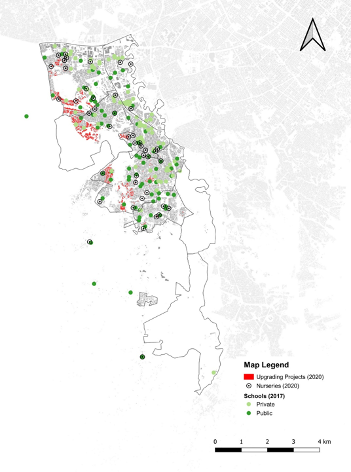Political Activism as Urban Design: Investigating Processes of Urban Transformation in Bogotá and Berlin Triggered by Practices of Political Activism
Architects and urban designers today face a context in which traditional politics and cities are struggling to cope with increasing urbanisation rates, rising inequalities, and everyday forms of oppression. Meanwhile, social movements and political activists are rising up and inhabiting urban spaces as sites of contestation. Communities around the world have taken matters in their own hands to build their own place in cities – through direct action they have provided homes, services and even infrastructure.
This research aims to explore how, beyond occupations, political activism actually shapes – designs – the city at different scales; it argues that political activism drives process of urban transformation and as such can be understood as an alternative mode of urban design practice.

Source: Author
Political activists operate in a realm between legality and illegality, where they deal with – and contest – spatial manifestations of power in their everyday lives. Through a comparative account of informal building processes in the Ciudad Bolivar district in Bogota (Colombia) and the district of Kreuzberg in Berlin (Germany), the research demonstrates how cities can be shaped by direct action. These cases exemplify how resistance, oppression and violence can be instrumental in city-making processes at different scales. Consequently, they support the call for architects and urban designers to rethink current practices in a way that engages with political activism and voices rising up from below.
This implies a shift from urbanist activism, where we are first urbanists and then become activists, to activist urbanism, where our practice emerges from an activist agenda.
Publications
Usubillaga, J. 2020. Can Political Activism (re)design cities? Presented at: London Festival of Architecture Symposium, London, UK, 30 June 2020.
Contact
Email: UsubillagaNarvaezJ1@cardiff.ac.uk
Twitter: @jfusubillaga
